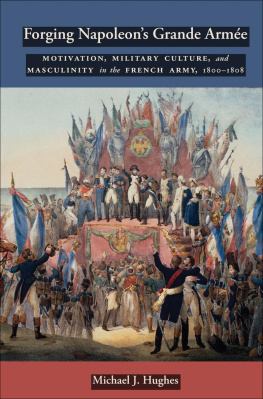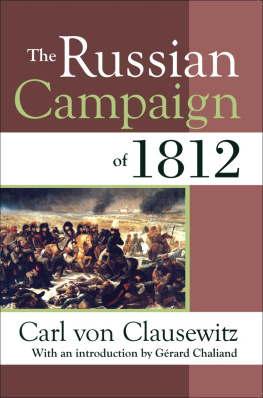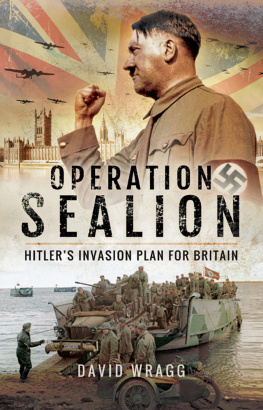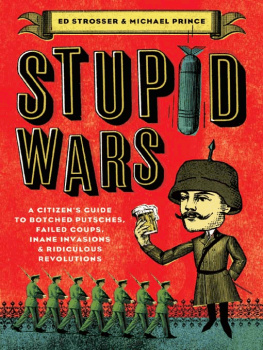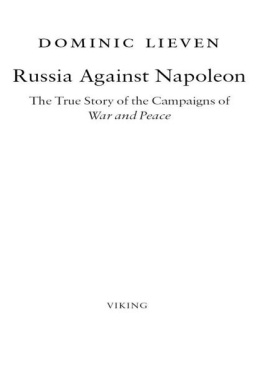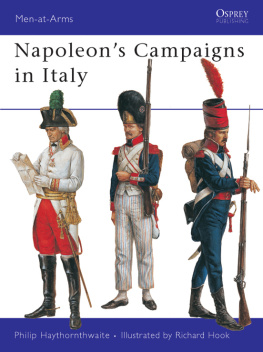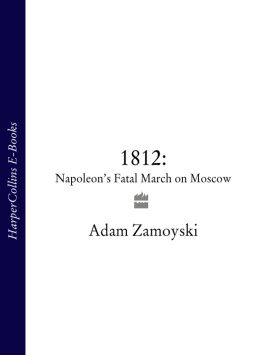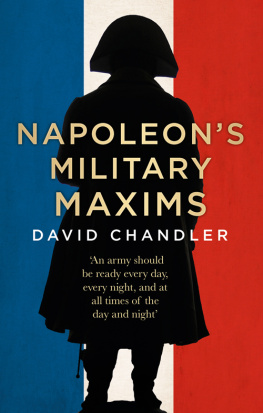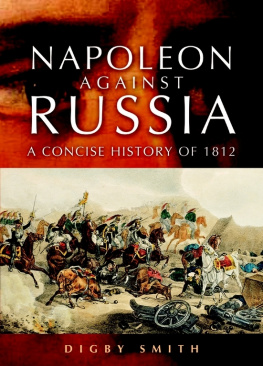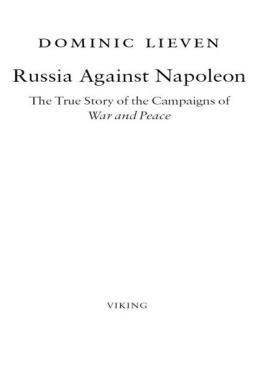Nafziger - Napoleons Invasion of Russia
Here you can read online Nafziger - Napoleons Invasion of Russia full text of the book (entire story) in english for free. Download pdf and epub, get meaning, cover and reviews about this ebook. City: Novato;Calif, year: 2013;2009, publisher: Random House Publishing Group;Presidio Press, genre: History. Description of the work, (preface) as well as reviews are available. Best literature library LitArk.com created for fans of good reading and offers a wide selection of genres:
Romance novel
Science fiction
Adventure
Detective
Science
History
Home and family
Prose
Art
Politics
Computer
Non-fiction
Religion
Business
Children
Humor
Choose a favorite category and find really read worthwhile books. Enjoy immersion in the world of imagination, feel the emotions of the characters or learn something new for yourself, make an fascinating discovery.

Napoleons Invasion of Russia: summary, description and annotation
We offer to read an annotation, description, summary or preface (depends on what the author of the book "Napoleons Invasion of Russia" wrote himself). If you haven't found the necessary information about the book — write in the comments, we will try to find it.
Napoleons Invasion of Russia — read online for free the complete book (whole text) full work
Below is the text of the book, divided by pages. System saving the place of the last page read, allows you to conveniently read the book "Napoleons Invasion of Russia" online for free, without having to search again every time where you left off. Put a bookmark, and you can go to the page where you finished reading at any time.
Font size:
Interval:
Bookmark:
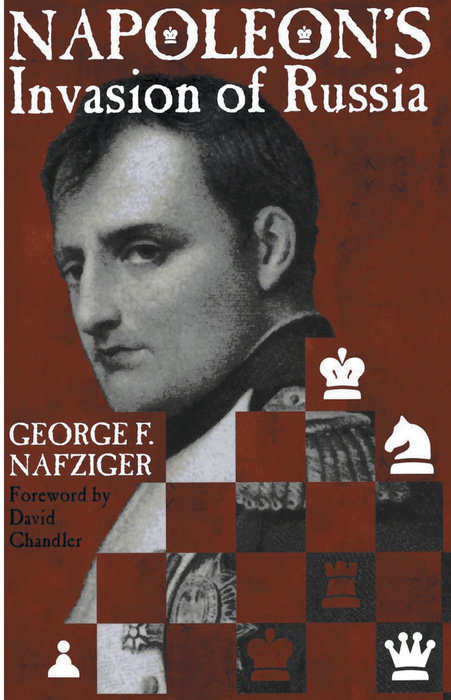
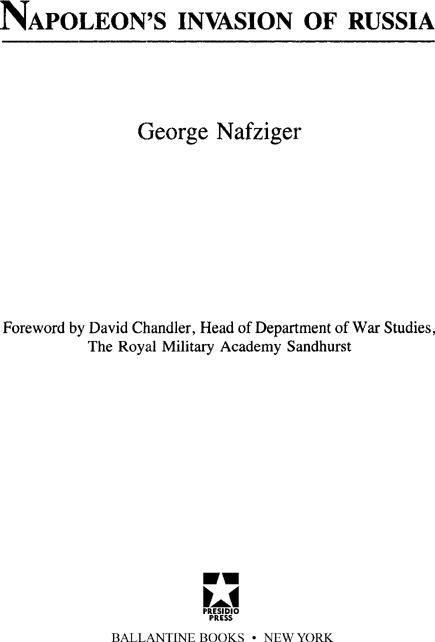
A Presidio Press Book
Published by The Random House Ballantine Publishing Group
Copyright 1988 by George F. Nafziger
All rights reserved under International and Pan-American Copyright Conventions. Published in the United States by The Random House Ballantine Publishing Group, a division of Random House, Inc.
Presidio Press is a trademark of Random House, Inc.
www.ballantinebooks.com
Library of Congress Cataloging-in-Publication Data
Nafziger, George F.
Napoleon's invasion of Russia.
Bibliography: p. 641.
Includes index.
1. Napoleonic Wars, 1800-1814CampaignsSoviet Union. 2. France. ArmeHistoryNapoleonic Wars, 1800-1814. 3. Soviet Union. ArmiiHistory19th century. I. Title.
DC235.N24 1988 940.27 88-6029
eISBN: 978-0-307-53881-9
v3.0_r1
Errata to original edition
appears at the end of the book.

CHAPTER I
CHAPTER II
CHAPTER III
CHAPTER IV
CHAPTER V
CHAPTER VI
CHAPTER VII
CHAPTER VIII
CHAPTER IX
CHAPTER X
CHAPTER XI
CHAPTER XII
CHAPTER XIII
CHAPTER XIV
CHAPTER XV
CHAPTER XVI
CHAPTER XVII
TERRAIN DIAGRAMS (following page 340)
Engagement at Romanov, 7 March
First Battle of Polotsk, 17 June
Engagement at Mir, 28 June
Battle of Saltanovka, 11 July
Battle of Ostrowno, 13/14 July
Battle of Jakobovo, 19 July
Battle of Loubino, 7 August
Battle of Smolensk, 7 August
Battle of Gorodetchna, 12 August
Battle of Borodino, 7 September
Battle of Trautino, 6 October
Battle of Polotsk, (second battle) 18 October
Battle at Malo-Jaroslavetz, 24 October
Battle of Smoliantsy, 1 November
Battle of Krasnoe, 5 November
Battle of Berezina, 16 November
APPENDIX I
APPENDIX II
APPENDIX III
APPENDIX IV

Apart from the Battle of Waterloo and the Campaign of the Hundred Days, no episode exerts a greater fascination over the military historian or general reader with an interest in the Napoleonic period than the Campaign in Russia, 1812. The subject has inspired Tchaikovsky's famous Overture, many memoirs by participants who survived the great cataclysm (Russian as well as French and their allies), historical analyses almost without number, numerous notable paintings, perhaps the greatest novel ever written (Leo Tolstoy's War and Peace), a number of films and television series, and at least half-a-dozen war games (boxed and video). Now George F. Nafziger has contributed this impressive volume as the latestbut doubtless not the lastserious study of this great and compulsive theme.
It is not 175 years since Napoleon launched his huge, ill-fated attack on Tsarist Russia. The subject still grips, confounds, horrifies, yet fascinates the readerin my case, after all of a quarter-century of study of the Napoleonic era, without the least trace of diminution. Here, indeed, is a titanic struggle with few equals in scale and drama. It is a subject worthy of an ancient Greek tragediana compelling cause fought as much against climate and geography as between armies, presided over by gigantic historical figures in Napoleon, Kutusov, Ney, Davout, Barclay de Tolly, and Tsar Alexander I, towering over a joint military cast of a million or more, containing large battles, a myriad individual acts of heroism (and a few infamous acts) all leading up to cataclysmic disaster for la Grande Arme de Russie and to the Gtterdammerungthe Twi- light of the Gods55for undoubtedly the greatest Grand Captain'9 of modem history, the Emperor Napoleon I.
Tolstoy was at pains to portray Napoleon and Kutusov as in the grip of superhuman forces, mere leaves blown to and fro by the winds of Fate, with scant if any power to affect the great issues at stake; but, as this book makes clear, this determinist interpretation is not sustainable, The history of the Campaign of 1812 is in fact an immense passionate drama involving the lives and deaths of hundreds of thousands of participants, exalted and humble, their individual destinies very much dependent on the calculated decisions and human foibles, strengths, and weaknesses of their chiefs. It was an age of giants.
It is hard to comprehend what is meant by casualty figures on the scale involved. The Grande Artne's central army groupperhaps 450,000-men strong at the outset-came out of Russia only some 25,000-strong. Of 250,000 horses, only 18,000 skeletal mounts and draught animals survived. Of more than 1,000 guns taken over the Niemen River frontier in June 1812, a mere 120 remained with the army in early January the next year. Possibly the most expensive day in world history, in terms of human loss of life and misery caused by conventional battle, was 7 September 1812the battle of Borodino. By nightfall a joint total of at least 74,000 soldiers had become casualties, including in their number no fewer than 71 generals. These figures even outshadow those of the first day of the battle of the Somme, 1 July 1916, when 60,000 British troops were mown down by German machine-gun and artillery fire for minimal losses sustained by the defenders. At Borodino, 104 years earlier, it was as if a jumbo-jet loaded with passengers had crashed every three minutes from dawn to dusk in an area barely six square miles in extentsay central London or central New York. Small wonder Napoleon termed it the most dreadful of my battles. But the same God of war could claim, a year afterwards, that he had fought 60 battles and learnt nothing that I did not know at the beginning. Even if this was a cast-off remark intended for effect rather than literal accuracy, it is a pretty chilling pronouncement. If there was one date when Napoleon should have learnt a great deal, that was surely 7 September 1812,
For the student of military history, the events of 1812 are full of interest. Although overshadowed by events in Eastern Europe, it should also be recalled that the war in the Iberian Peninsula was reaching its first great climax, as Wellington secured control of the twin corridors linking Portugal and Spain (but not without such gory events as the storming of Badajoz) and then proceeded to commence the liberation of the latter country (aided by the reductions in French manpower ordered by Napoleon to build up his armament along the Polish frontier), leading to the battle of Salamanca (news of which only reached Napoleon on the eve of Borodinoa comment on the communication problems of the time), the joyous occupation of Madrid, and then the setback before Burgos which led to a rapid retreat back to Portugal, with everything to be recontested in 1813. The year 1812 also saw the Anglo-American war break out in the Western hemisphere, with its dramatic frigate actions at sea and its American setbacks on land. It was indeed a year of Destiny for a strife-torn world.
Some of the major areas of interest the Russian campaign offers are as follows: The causation of this great struggle between nations and alliances was many-sided, but was it inevitable? Or could the two power blocs have lived amicably side by side? These are matters with no little modem significance. The preparations for war by both sides and the differing natures of their respective armies also repay study. Were they effective? Could they have been improved? Were the war plans realistic and attainable, or were they rapid improvisations to meet an evershifting situation (particularly the Russian strategy of trading space for time)? The communication, command, and control systems on both sides were stretched to the limit. Could these have been improved? The roles of distance, climate, and local fertility within Russia posed the French with as daunting problems of supply, health, and exhaustion of resources as any faced by Hitler's Wehrmacht in 1941-1944. Did Napoleon take these factors properly into account? The importance of the peasant-partisans under General Davydov in harassing the French lines of communication and supply is much stressed by modern Soviet historians. Was this threat containable in 1812; and, if so, what are the possible implications for today? The French lost more animalsand nearly as many menin the advance to Moscow as they did in th celebrated retreat, yet their morale remained high. That certainly cannot be said of the retreat to Poland, What psychological lessons about men under severe physical stress in a hostile environment are relevant to late 20th-century experience? The list could go on almost indefinitely but George Nafziger's excellent treatment will suggest answers to many of the posed questions, and no doubt give rise to many more. For, as Professor Geyl of the Netherlands once percipiently remarked, History is indeed an argument without end.
Font size:
Interval:
Bookmark:
Similar books «Napoleons Invasion of Russia»
Look at similar books to Napoleons Invasion of Russia. We have selected literature similar in name and meaning in the hope of providing readers with more options to find new, interesting, not yet read works.
Discussion, reviews of the book Napoleons Invasion of Russia and just readers' own opinions. Leave your comments, write what you think about the work, its meaning or the main characters. Specify what exactly you liked and what you didn't like, and why you think so.

